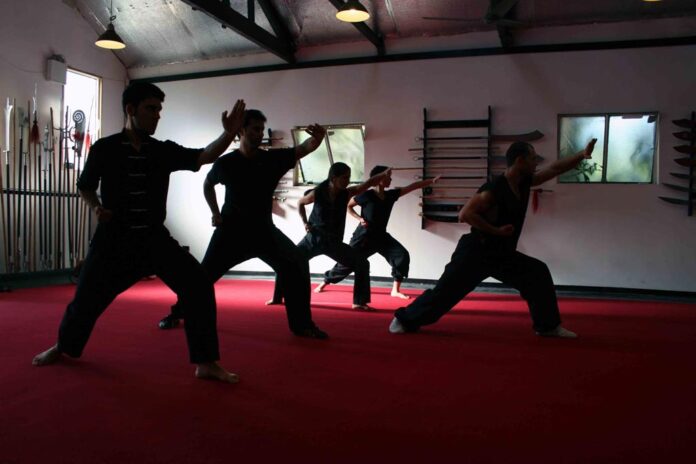Martial arts have long been valued not only for self-defense but also for their ability to cultivate mental resilience, discipline, and physical health. Among the world’s oldest and most respected traditions, Kung Fu stands out as a practice that seamlessly combines philosophy, fitness, and self-mastery. In today’s fast-paced society, where stress and sedentary lifestyles are increasingly common, engaging in a structured martial art can provide both balance and empowerment.
Why Enrolling in Kung Fu Classes Can Be Life-Changing
Joining Kung Fu Classes is not merely about learning how to fight; it is about embarking on a holistic journey of self-improvement. Students are introduced to time-honored techniques rooted in centuries of Chinese tradition while also developing traits such as patience, discipline, and respect. Unlike many modern fitness programs, Kung Fu offers a deeper sense of purpose, blending cultural heritage with physical training and mental focus.
The Historical Roots of Kung Fu
Kung Fu has origins that stretch back thousands of years. Ancient practitioners developed the art as both a means of self-defense and a method of cultivating spiritual awareness. The influence of Taoism and Buddhism shaped its philosophy, emphasizing harmony between body, mind, and environment. Monks at the Shaolin Temple famously refined and systemized the practice, giving rise to many of the styles that exist today. Each style reflects unique strategies, movements, and philosophies, whether based on animal-inspired techniques, flowing circular motions, or powerful linear strikes.
What to Expect in a Kung Fu Class
A typical class is structured to provide balance between physical training and mental discipline. Students of all levels can benefit, as instructors often adapt techniques for beginners and advanced learners alike. Common elements of a class include:
- Warm-ups and Conditioning: Exercises designed to build flexibility, endurance, and core strength.
- Stances and Footwork: Foundational positions that develop stability, posture, and balance.
- Forms (Taolu): Choreographed sequences that simulate combat while refining precision and coordination.
- Striking and Defense Techniques: Punches, kicks, and defensive maneuvers that sharpen reflexes.
- Meditation and Breathing Practices: To enhance focus, relaxation, and energy control.
The combination of these elements creates a well-rounded experience that nurtures both the body and the mind.
Physical Benefits of Kung Fu
One of the key attractions of Kung Fu is its impact on overall health and fitness. Regular practice delivers a wide range of benefits:
- Strength and Conditioning: Dynamic movements build muscular endurance and cardiovascular stamina.
- Flexibility and Agility: Continuous practice of stances and kicks improves range of motion.
- Weight Management: High-intensity sessions burn calories and support a healthy lifestyle.
- Improved Coordination: Complex techniques enhance balance and motor skills.
- Better Posture: Training helps align the body, reducing stress on joints and muscles.
Mental and Emotional Growth
Kung Fu is equally powerful in shaping the mind. Students often discover that consistent training influences their outlook beyond the classroom. Benefits include:
- Discipline: Regular practice builds persistence and commitment.
- Confidence: Mastering techniques instills self-assurance.
- Stress Reduction: Breathing exercises and focused movement promote relaxation.
- Focus and Concentration: Precision in techniques strengthens attention to detail.
- Resilience: Overcoming challenges in training encourages mental toughness.
Suitable for All Ages
Another strength of Kung Fu is its adaptability. Whether a child seeking discipline and confidence, an adult aiming to improve fitness, or a senior looking for low-impact exercise with mindful benefits, Kung Fu can be tailored to individual needs. The diversity of styles and approaches makes it accessible to virtually anyone interested in personal growth.
The Cultural Dimension
Kung Fu is not just physical exercise—it is a window into centuries of Chinese culture and philosophy. Students gain appreciation for traditions that emphasize harmony, respect, and balance. This cultural richness sets Kung Fu apart from purely sport-focused martial arts, making the journey deeply meaningful.
Challenges and Rewards
Like any discipline, Kung Fu requires patience. Progress can feel gradual, as mastery demands repetition and dedication. Yet, the rewards are long-lasting: improved health, self-defense skills, and a more focused, resilient mindset. Many students find the lessons learned in training extend naturally into their daily lives, shaping how they approach challenges at work, school, or within relationships.
Looking Ahead: Kung Fu in Modern Society
In today’s world, Kung Fu continues to evolve while maintaining its traditional values. With global interest in wellness and mindfulness on the rise, martial arts are increasingly recognized as holistic approaches to personal development. Modern classes often integrate traditional techniques with contemporary fitness knowledge, ensuring that the art remains relevant and beneficial for new generations.
Conclusion
Kung Fu is far more than a set of fighting techniques—it is a lifelong journey of physical development, mental strength, and cultural appreciation. Enrolling in Kung Fu classes offers individuals a chance to not only learn self-defense but also to build character, embrace discipline, and cultivate harmony within themselves. For anyone seeking a balanced path to fitness and personal growth, Kung Fu provides timeless wisdom and enduring benefits that extend well beyond the training hall.

